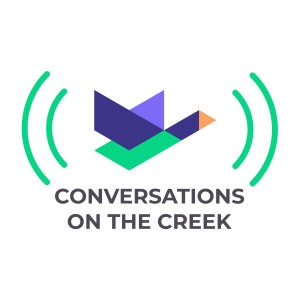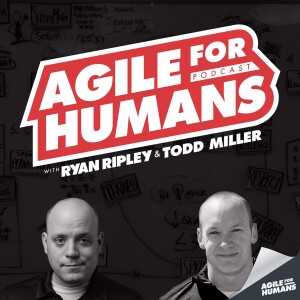
- Podcast Features
-
Monetization
-
Ads Marketplace
Join Ads Marketplace to earn through podcast sponsorships.
-
PodAds
Manage your ads with dynamic ad insertion capability.
-
Apple Podcasts Subscriptions Integration
Monetize with Apple Podcasts Subscriptions via Podbean.
-
Live Streaming
Earn rewards and recurring income from Fan Club membership.
-
Ads Marketplace
- Podbean App
-
Help and Support
-
Help Center
Get the answers and support you need.
-
Podbean Academy
Resources and guides to launch, grow, and monetize podcast.
-
Podbean Blog
Stay updated with the latest podcasting tips and trends.
-
What’s New
Check out our newest and recently released features!
-
Podcasting Smarter
Podcast interviews, best practices, and helpful tips.
-
Help Center
-
Popular Topics
-
How to Start a Podcast
The step-by-step guide to start your own podcast.
-
How to Start a Live Podcast
Create the best live podcast and engage your audience.
-
How to Monetize a Podcast
Tips on making the decision to monetize your podcast.
-
How to Promote Your Podcast
The best ways to get more eyes and ears on your podcast.
-
Podcast Advertising 101
Everything you need to know about podcast advertising.
-
Mobile Podcast Recording Guide
The ultimate guide to recording a podcast on your phone.
-
How to Use Group Recording
Steps to set up and use group recording in the Podbean app.
-
How to Start a Podcast
-
Podcasting
- Podcast Features
-
Monetization
-
Ads Marketplace
Join Ads Marketplace to earn through podcast sponsorships.
-
PodAds
Manage your ads with dynamic ad insertion capability.
-
Apple Podcasts Subscriptions Integration
Monetize with Apple Podcasts Subscriptions via Podbean.
-
Live Streaming
Earn rewards and recurring income from Fan Club membership.
-
Ads Marketplace
- Podbean App
- Advertisers
- Enterprise
- Pricing
-
Resources
-
Help and Support
-
Help Center
Get the answers and support you need.
-
Podbean Academy
Resources and guides to launch, grow, and monetize podcast.
-
Podbean Blog
Stay updated with the latest podcasting tips and trends.
-
What’s New
Check out our newest and recently released features!
-
Podcasting Smarter
Podcast interviews, best practices, and helpful tips.
-
Help Center
-
Popular Topics
-
How to Start a Podcast
The step-by-step guide to start your own podcast.
-
How to Start a Live Podcast
Create the best live podcast and engage your audience.
-
How to Monetize a Podcast
Tips on making the decision to monetize your podcast.
-
How to Promote Your Podcast
The best ways to get more eyes and ears on your podcast.
-
Podcast Advertising 101
Everything you need to know about podcast advertising.
-
Mobile Podcast Recording Guide
The ultimate guide to recording a podcast on your phone.
-
How to Use Group Recording
Steps to set up and use group recording in the Podbean app.
-
How to Start a Podcast
-
Help and Support
- Discover
Ryan and Todd look back at a 2006 post by Ken Schwaber, which covers 15 ways Scrum is both hard and disruptive.
The fourteenth statement from Ken:
"A team consists of people under pressure to do their best. Conflict is natural and the team needs to know how to deal with the conflict and have resources to draw on when needed."
Natural Conflict in Teams: The episode discusses how conflict is a natural occurrence in teams, especially under pressure. This pressure can be constructive and lead to better performance if it's oriented towards clear goals, such as achieving Sprint and product goals in Scrum.
Healthy vs. Unhealthy Conflict: They emphasize the difference between healthy and unhealthy conflict. Healthy conflict focuses on problem-solving and can be beneficial, while unhealthy conflict, which can escalate to personal fights, is detrimental. The key is to maintain focus on solving problems, not winning arguments.
Role of Scrum Values in Managing Conflict: Scrum values like commitment are highlighted in managing conflict. These values support positive, natural conflict oriented towards team goals and problem-solving instead of destructive fights.
Team Dynamics and Conflict Resolution: The hosts discuss the importance of recognizing when a discussion is veering away from productive conflict and turning into a personal fight. They stress the importance of team members being able to intervene, reset the focus on the problem, and avoid stubbornness in pursuit of being right.
Balance Between Agreement and Conflict: They conclude that while conflict is necessary for progress, it needs to be balanced. Neither constant agreement nor continuous fighting is beneficial. A good Scrum Master, product owner, or team member should help maintain this balance, encouraging healthy conflict while preventing fights.
👉 Follow our journey through all 15 insights in Ken Schwaber's white paper, revealing the enduring relevance of Scrum principles.
💬 Share your perspectives in the comments and remember to like and subscribe for more in-depth Scrum discussions. 🔔
🔗 Here is the original white paper: https://www.verheulconsultants.nl/ScrumIsHardandDisruptive.pdf
🔗 Join Ryan & Todd's Scrum.org course: https://buytickets.at/agileforhumansllc
Explore more:
📖 "Unlocking Business Agility with Evidence-Based Management: Satisfy Customers and Improve Organizational Effectiveness" on Amazon -- https://amzn.to/4690qJy
📖 "Fixing Your Scrum: Practical Solutions to Common Scrum Problems" on Amazon -- https://amzn.to/46dAQTC
✅ Subscribe to this channel for Agile, Scrum, and Kanban insights: https://www.youtube.com/agileforhumans?sub_confirmation=1
- 🌐 Connect with Agile for Humans:
- 📘 Website - https://agileforhumans.com/
- 🐦 Twitter - https://twitter.com/agileforhumans
- 🔗 LinkedIn - https://www.linkedin.com/company/agile-for-humans-llc
- 🔍 The Evidence-Based Company - https://theevidencebasedcompany.com/
- 📧 Email - ryan@agileforhumans.com
Learn more about your ad choices. Visit megaphone.fm/adchoices
More Episodes
Can an inexperienced development team without any senior members can implement scrum?
 2023-10-24
2023-10-24
YDS: Will I Get Fired If My Team Is Performing So Well?
 2023-10-02
2023-10-02
YDS: Advice for New Product Owners
 2023-09-25
2023-09-25
YDS: How do I deal with a developer who does not keep to an agreement?
 2023-09-21
2023-09-21
YDS: What's the Typical Day for a Scrum Master?
 2023-09-07
2023-09-07
Becoming a Scrum Master - The Dev Manager
 2023-09-05
2023-09-05
YDS: Self Study Resources for EBM and Flow Metrics
 2023-08-31
2023-08-31
THE MODERN SOFTWARE DEVELOPER: Pair-programming Battleship
 2023-08-17
2023-08-17
YDS: How Does a Scrum Team Handle Unplanned Work?
 2023-05-19
2023-05-19
YDS: Who Facilitates the Sprint Review in Scrum?
 2023-05-18
2023-05-18
YDS: How a Scrum Team Finds Workflow Bottlenecks
 2023-05-17
2023-05-17
YDS: How to Return to Being a Scrum Master After a Break
 2023-05-16
2023-05-16
YDS: Is the Product Backlog the Source of Work for Scrum?
 2023-05-15
2023-05-15
YDS: Thoughts on Agile Coaches and Scrum Masters in an Org
 2023-05-14
2023-05-14
YDS: What Does a Scrum Team Annual Report Look Like?
 2023-05-13
2023-05-13
YDS: How Do You Make Scrum Training Effective Long Term?
 2023-05-12
2023-05-12
YDS: Using Scrum with Data Science Teams
 2023-05-11
2023-05-11
FYAM: Exploring Time to Market (T2M) Cycle Time
 2023-05-11
2023-05-11
YDS: Can a Shorter Sprint Length Help a Scrum Team Learn?
 2023-05-10
2023-05-10
YDS: Questions Scrum Masters Should Ask When Starting with EBM
 2023-05-09
2023-05-09
Create your
podcast in
minutes
- Full-featured podcast site
- Unlimited storage and bandwidth
- Comprehensive podcast stats
- Distribute to Apple Podcasts, Spotify, and more
- Make money with your podcast
It is Free
You may also like

Ham Radio Crash Course Podcast


Zero-Shot


Conversations on the Creek


Elliot in the Morning


Lex Fridman Podcast


- Privacy Policy
- Cookie Policy
- Terms of Use
- Consent Preferences
- Copyright © 2015-2025 Podbean.com

 iOS
iOS Android
Android